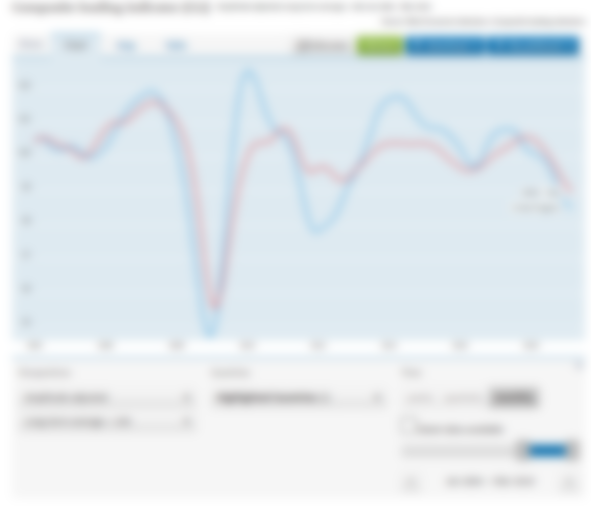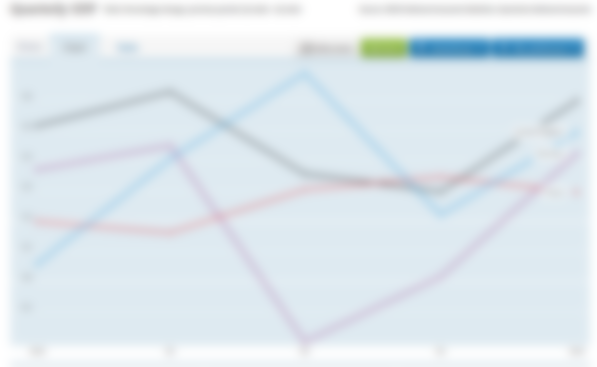
Brexit: what do the numbers really say?
Brexit isn’t all bad news. The effect on the UK economy is a tale of great economics yet also worrying uncertainty. Political uncertainty and a global economic slowdown are not just a UK phenomenon - here’s what fintech leaders need to know.
Brexit threatens the UK economy. That’s the thesis of ‘Project Fear’, whose proponents have been predicting an economic catastrophe for the last three years.
Yet Brexit is a driver of growth and opportunity for the UK economy, shout the Brexiteers.
Can both be true, or is it perhaps one’s point of view that frames the answer? There is no shortage of both qualitative and quantitive data about the UK Economy to bring some rigour to answering this question.
The CBI UK Business Optimism Indicator, a qualitative measure, increased to -13 in the second quarter of 2019; up 10 points from the previous quarter.
This demands some context. Business Confidence in the United Kingdom averaged -3.54 Index Points from 1958 until 2019, reaching an all-time high of 55 in 1959 and a record low of -75 in 1974. It will come as no surprise that British business owners seem to be a rather pessimistic lot!
However, if you track this against the equivalent OECD chart (fig 1), the UK has been generally a little more confident than the OECD average. So maybe not so pessimistic after all.

Another benchmark of confidence is IHS Markit’s UK Purchasing Managers Index (PMI), which shows a steady rise in confidence from a recent low in Oct ’18. The PMI currently stands at 53.1, down from last quarter but with a trend toward 53.4. In the previous five years – thus including time before Brexit considerations began to bite, it has varied between 48 and 58 points. So we see no significant change there.
“The UK is falling behind global competitors, but not particularly dramatically when compared to Germany and France, (Fig 2), who lag even further behind the average.”
The quantitative index UK GBP Annual Growth rate was 1.8% year-on-year in Q1/2019, up from 1.4% in the previous period. It has not been stronger since Q3/2017. Most expect this figure to trend at around 1.7% by 2020. Thus, the economy is still growing despite Brexit.
A more significant influence on GDP was the 2009 crash (not least because it had global repercussions) and the UK has enjoyed steady growth and record employment figures since then. There are plenty of clouds on the horizon - a slowdown in China may limit future growth, for example – but Brexit is not the only prism through which the UK should think about its economic future.
For a similarly balancing perspective, it’s also worth examining our peers. OECD global economic Growth in 2019 is 3.2% and predicted in 2020 to be 3.4%, so the UK is falling behind global competitors, but not particularly dramatically when compared to Germany and France, (Fig 2), who lag even further behind the average. The Brexit downturn may be happening on the wrong side of the Channel for some.

That’s not to say there are no challenges. Unpredictability is more problematic than disruption. Car production, for example, dropped dramatically in April as UK car manufacturers brought forward their summer maintenance programs to coincide with what was meant to be Brexit One, at the end of March. They won’t be able to do this again for Brexit Two in October.

Mike Hawes, of the Society of Motor Manufacturers and Traders has said: “Today's figures are evidence of the vast cost and upheaval Brexit uncertainty has already wrought on UK automotive manufacturing businesses and workers. Prolonged instability has done untold damage… causing investment to stall, jobs to be lost and undermining our global reputation.” British Industry's monthly factory orders balance has been falling after a small rise in the spring, and UK Service PMI is steadily falling this year.
“Prolonged instability has done untold damage… causing investment to stall, jobs to be lost and undermining our global reputation.”
Yet UK corporate profits increased to £115.3BN in Q1/2019 from £112.2BN in Q4/2018. Private investment into the UK was positive in Q1/2019 after four quarters of outflow.
All of this tells us that whilst the UK economy is struggling to grow, most of the quantitative and qualitative data suggest that there is growth to be had. We may be underperforming the OECD average, but we are doing better than our nearest competition.
The World Economic Forum has identified ten current drivers of the global economy in 2019 (see driver two for Brexit). All of these factors are influencing the UK economy. In the UK, the main driver seems to be uncertainty as business tries to predict the UK Parliament’s next step. For the Government, just getting on with it – whatever ‘it’ might be, is likely the best outcome for the UK economy.
Faster, more cost-effective and transparent cross-border payments and currency exchange.
Freemarket gives you access to the wholesale bank exchange rate for currency exchange, global transaction banking optimised for your business and support from experts focussed on your business’s success.
Continue reading
Trust: a key commodity in fintech Trust is the key commodity in fintech: do your customers trust you, and how can you trust them? With complex intermediary relationships and cross-border transactions, it's never been more important to build a trusted brand. The notion of trust is hard baked into financial services.
Crypto: Bona Fide or a Ponzi Scheme? Bitcoin is back on an upward trajectory - and the speculators are piling in! So it's time to see what's changed since 2017: has BTC grown up, or is immaturity still the hallmark of crypto?

Freemarket works with businesses to accelerate their growth by giving them access to cross-border payments and currency exchange optimised for their needs.
Freemarket's platform gives you access to a global bank network and innovative technology in one place, allowing you to streamline your processes, remove complexity and increase efficiency.
FreemarketFX Limited is authorised by the Financial Conduct Authority (FCA) – Firm No.585093
30 Great Guildford Street
London, SE1 0HS




